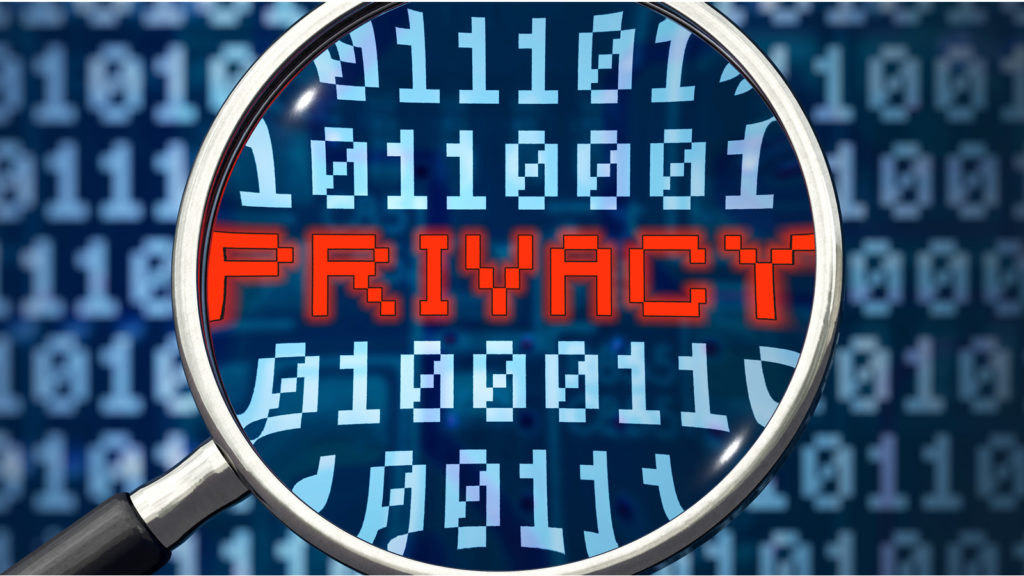
Tech Talk show notes for Tuesday, June 16, 2020. Listen live Tuesday mornings on WTCA FM 106.1 and AM 1050 in Plymouth, Indiana.
When I talk to people about online privacy, they’re usually shocked to hear that they are the product. This usually leads to the question, “What do you mean that I’m a product?”
There are tons of free services available online. The most common are ones you’ve already heard of and are probably using right now – Google and Facebook. These services are free to use. But you have to question yourself this question – how do these companies make money if they’re free?
The answer is simple. You are the product. These companies make money by collecting personal information about your digital life. They collect everything they can about you – your geographic location, the type of device you use to access the internet, what you search for online, and much more personal information.
Facebook is extremely granular in what it knows about each of its users. They know your age, your phone number, your relationship status, your income, your level of education, and much more. It’s almost scary what they do know about you. But in most cases, this is information that you have freely provided to them.
Once these companies have this information, they then sell that basic information to advertisers. Now they aren’t directly selling your name and address, but they are providing a way for advertisers to reach you through complicated algorithms and analytics.
So let’s say that a small business in Reno, Nevada, sells blue widgets. They know that the biggest purchasers of their blue widgets are 35-year old men who live in north-central Indiana that work in the medical field. The Reno business can go on Facebook, select the correct parameters, and directly advertise to those who match their parameters. The company in Reno then pays Facebook to show you their ad and hopefully, they make a bunch of money when you purchase their blue widget.
Now if you’re OK with that, then being concerned about your online privacy isn’t a big deal. But there are some people who are dismayed about such situations. In those cases, my best suggestion is to simply stop using those services or not to sign up for them at all.
Online companies know a lot about us. Privacy advocates say that they know way too much about us. And they could be right. We have to trust the big corporations to ensure our data and privacy are protected and that doesn’t always happen. Data breaches happen all the time, exposing our personal information to bad guys. That data might contain information on what type of food we like to eat, but it can also contain much more sensitive information. The sensitive stuff is what concerns me.
Really, it isn’t if your information will become exposed online, it’s when. Sooner or later, everyone will get a letter in the mail or receive a message in their inbox telling them that their information has been exposed. It might be something as simple as a stolen email or password, or it could be something much more personal – like your medical records. And honestly, there isn’t a whole lot that you can do to prevent it. But there are a couple of things you can do to minimize the damage.
Use Unique Passwords
An easy mistake to make is to utilize the same password for each website or service you use. Your passwords really should be unique. For example, if you use the same password for websites X, Y, and Z, and website Z becomes compromised, a nefarious person could conceivably use your password to access sites X and Y. Even though sites X and Y are still secure, your personal data is now under the control of someone else.
Also, don’t use passwords that are easy to guess. Don’t use common passwords like ‘12345678’ or ‘password’. If you do, you’re just asking for trouble. Hackers are after your personal information, so make it difficult for them to get that data.
You can even check and see if one of your accounts has been compromised on a number of popular websites. There is a free online service called Have I Been Pwned that I highly recommend. Simply navigate to their site, input your email address and it will give you a list of every website using your email address that has been compromised. It’s a good starting point and will show you the importance of having a unique password. If you find your account has been compromised, start changing your passwords and make them unique!
Monitor Your Credit History
Keep an eye on your credit files. In many large data breaches, the companies will provide you with free credit monitoring. Thieves can use personal information they steal to open up credit cards, take out loans, or even buy real estate – sticking you with the headache of trying to fix the problem. Monitoring your credit history can help determine if you’ve been the victim of identity theft.
You can access your credit files by visiting Annual Credit Report, which is offering free online reports until April 2021 because of the COVID-19 outbreak. You can also use a free service like Credit Karma. But remember, you are the product of this modern age. Credit Karma is trying to match you up with credit cards and loan offers by accessing your credit history.
